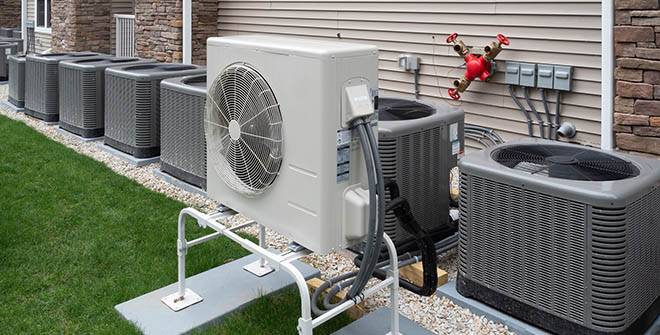
Imagine walking into your home and feeling that perfect, just-right temperature, no matter what the weather's doing outside. That's the magic of reliable heating and air conditioning units. But with so many options available, how do you choose the right one for your needs? Let's dive into the world of HVAC (Heating, Ventilation, and Air Conditioning) and explore everything you need to know.
Understanding the Basics
First, let's break down what these systems do. A heating unit keeps your home warm during chilly months, while an air conditioning unit cools things down when it gets hot. These systems work together to maintain a comfortable indoor environment year-round.
Types of Heating Units
- Furnaces: These are the most common type of heating system. They burn fuel (like natural gas or propane) to heat air, which is then distributed throughout your home via ducts.
- Heat Pumps: These units can both heat and cool your home. In heating mode, they extract heat from the outside air (even in cold weather!) and transfer it indoors.
- Boilers: Boilers heat water, which is then circulated through radiators or baseboard heaters to warm your home.
- Electric Heaters: These are ideal for smaller spaces or as supplemental heating. They convert electricity into heat.
Types of Air Conditioning Units
- Central Air Conditioners: These cool your entire home through a system of ducts. They're typically paired with a furnace or heat pump.
- Ductless Mini-Splits: These are great for homes without ductwork. They consist of an outdoor compressor and one or more indoor units.
- Window Air Conditioners: These are designed to cool a single room. They're affordable and easy to install.
- Portable Air Conditioners: These can be moved from room to room. They're a good option for renters or those who need temporary cooling.
Choosing the Right Unit
Selecting the perfect heating and air conditioning unit depends on several factors:
- Home Size: Larger homes require more powerful units.
- Climate: If you live in an area with extreme temperatures, you'll need a robust system.
- Energy Efficiency: Look for units with high SEER (Seasonal Energy Efficiency Ratio) and AFUE (Annual Fuel Utilization Efficiency) ratings.
- Budget: Consider both the initial cost and long-term energy savings.
- Installation: Professional installation is crucial for optimal performance.

Maintenance and Care
To keep your heating and air conditioning units running smoothly, regular maintenance is essential:
- Change Filters: Dirty filters restrict airflow and reduce efficiency.
- Clean Coils: Dirty coils can hinder heat transfer.
- Schedule Tune-Ups: Annual inspections by a qualified technician can prevent costly repairs.
- Check Ducts: Ensure your ducts are clean and properly sealed.
The Importance of Energy Efficiency
Investing in energy-efficient heating and air conditioning units is not only good for your wallet but also for the environment. Look for units with the ENERGY STAR label, which indicates they meet strict energy-efficiency guidelines. By choosing energy-efficient options, you can reduce your carbon footprint and save on energy bills.
Advanced Technologies
Modern heating and air conditioning units come with a range of advanced features, including:
- Smart Thermostats: These allow you to control your home's temperature remotely and learn your preferences.
- Zoning Systems: These allow you to control the temperature in different areas of your home independently.
- Variable-Speed Motors: These adjust the fan speed based on demand, improving efficiency and comfort.
- Air Purifiers: Many systems now integrate air purification features to improve indoor air quality.
In conclusion, understanding your heating and air conditioning units is key to maintaining a comfortable and efficient home. By considering your needs, exploring your options, and investing in regular maintenance, you can ensure your HVAC system provides years of reliable service.
No comments:
Post a Comment
Note: Only a member of this blog may post a comment.